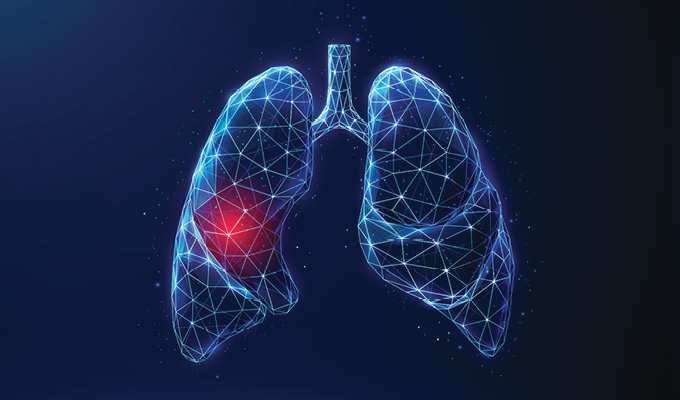On this episode of Hadassah On Call: New Frontiers in Medicine, we’re talking about two medical breakthroughs that are changing the face of cancer detection and treatment in Israel — and beyond.
First, we explore the Vectra WB360, a cutting-edge digital mole mapping system newly installed at Hadassah and the only one of its kind in the Middle East. Dr. Rony Shreberk-Hassidim, a senior physician in the Department of Dermatology at the Hadassah Medical Organization, explains how this AI-enhanced machine utilizes 92 synchronized cameras to photograph the entire body in under a minute and then tracks changes in moles over time.
“Early detection saves lives,” says Dr. Shreberk-Hassidim. “The software creates a full body map, flags suspicious lesions and helps us predict which moles could become cancerous.”
Next, Prof. Aron Popovtzer, director of the Sharett Institute of Oncology at the Hadassah Medical Organization, introduces us to Hadassah’s new vertical proton therapy system, developed in partnership with Israeli startup P-Cure. Unlike traditional radiation, which often damages surrounding tissue, this approach minimizes toxicity by using the Bragg peak effect to target tumors precisely — and from a seated position.
“It’s such a simple idea,” Prof. Popovtzer says. “Instead of rotating a giant radiation beam around the patient, we rotate the patient around the beam.”
We also explore the future of personalized cancer treatment, combining liquid biopsies, tissue samples, and artificial intelligence to tailor therapy. Both guests agree the future is bright — but caution that ethical and clinical oversight must evolve alongside the technology.
“AI will never replace the physician,” Dr. Shreberk-Hassidim says. “It assists — but the human context is still essential.”
Plus, we touch on how war-related stress is impacting cancer rates and skin conditions in Israel today.
Further learning:
- Check out Prof. Popovtzer's previous appearance on our show: Legacy, Passion and Moving Towards a Cure for Cancer
- Hadassah Hospitals Are First to Offer Early Skin-cancer Detection Technology VECTRA Whole-body Imaging System
- Hadassah to Debut Proton Therapy in Israel
- Breakthrough Research at Hadassah Cancer Institute Pinpoints Harmful Mutations
- A Glimpse At The Future
- Newsweek Recognizes Excellence of Specialties at Hadassah Ein Kerem
- Cancer Trailblazers at Hadassah Prioritize a Spirit of Innovation
- Hadassah's Sharett Institute of Oncology Welcomes a New Director
Hadassah On Call: New Frontiers in Medicine is a production of Hadassah, The Women's Zionist Organization of America. Hadassah enhances the health of people around the world through medical education, care and research innovations at the Hadassah Medical Organization. For more information on the latest advances in medicine, please head over to hadassah.org.
Subscribe to our podcast on Apple Podcast, YouTube or your favorite podcast app. If you haven't already, please leave us a review. It only takes a minute, and when you do, it helps others discover Hadassah On Call.
The show is hosted by Maayan Hoffman and produced by the team at the Hadassah offices in New York and Israel.
This episode includes promotions for:
Our recent episode with certified nurse-midwife Gila Zarbiv
If you are enjoying this episode, you’ll want to check out our previous episode with certified nurse-midwife, midwifery advocate and PhD Gila Zarbiv. Zarbiv discusses the unique model of care midwives offer — from pregnancy to postpartum — and why she believes Israel must allow women greater access to midwives beyond the hospital. You can find this episode of Hadassah On Call on Apple Podcasts, YouTube or wherever you get your podcast or on the web at hadassah.org/hadassahoncall.
Heart Commercial - Donate to Hadassah
Brace yourself for some truly exciting news out of the Hadassah Medical Organization.
Just a few weeks ago, Hadassah achieved another historic first: performing Israel’s first total artificial heart transplant.
Marking a new era in cardiac care, a medical team at Hadassah hospitals saved the life of a 63-year-old patient by replacing his entire heart with a special artificial one made of titanium, combined with biological animal tissues and advanced sensors. How amazing is that?
Each month, our podcast covers these types of groundbreaking methods and cutting-edge technology used by Hadassah doctors to save lives. If we’ve inspired you, please consider making a donation to Hadassah today. Your gift will help sustain our hospitals as global leaders in medical treatments, compassionate care and research. Visit hadassah.org/hadassahoncall and click on the DONATE button at the bottom of the page. Thanks so much for listening—and for being part of something truly life-changing.



.svg)



